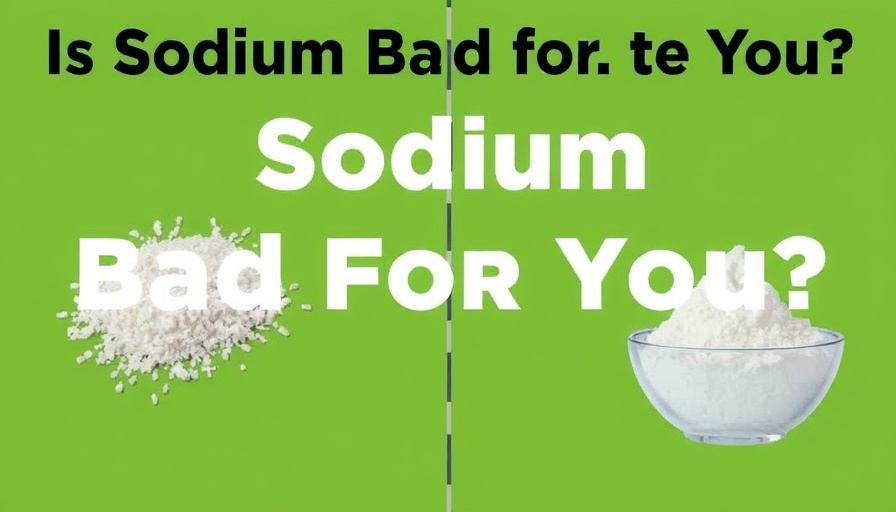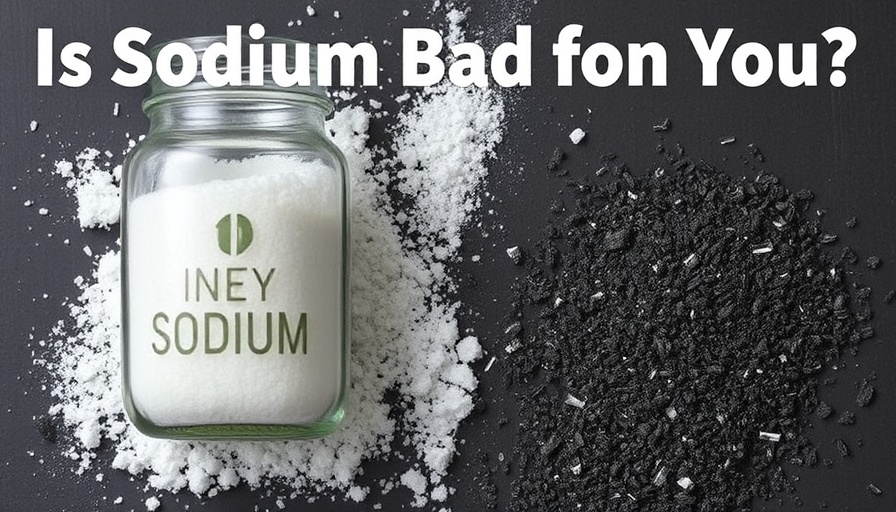
Is Sodium a Silent Culprit in Your Diet?
For many years, sodium has been vilified as a primary contributor to high blood pressure and other health issues. But how bad is sodium really? Understanding its role in our diets is crucial, especially for parents, homeowners, and seniors who seek a balanced approach to nutrition.
Myth vs. Fact: The Sodium Debate
One prevailing myth is that any amount of sodium is bad for you. In reality, sodium is an essential nutrient, playing a vital role in maintaining fluid balance and nerve function. The American Heart Association recommends limiting sodium intake to 2,300 milligrams per day for most adults, but some individuals, particularly those with hypertension, may benefit from lower limits. It's imperative to recognize that not all sources of sodium are created equal. A diet high in processed foods can lead to excessive sodium intake, whereas naturally occurring sodium in whole foods like vegetables and dairy may not pose the same risks.
Understanding the Health Implications
While excessive sodium can lead to significant health issues, it's also critical to contextualize these concerns within the broader framework of an individual’s overall diet. Forms of sodium found in processed foods often accompany unhealthy fats and sugars, which compounds health risks. To mitigate these, it’s beneficial to focus on whole foods while monitoring sodium levels effectively.
Empowering Choices for Healthier Living
For parents and seniors, making mindful choices about sodium can enhance overall wellness. Reducing processed food consumption and exploring herbs and spices for flavor can help decrease reliance on added salt. By taking an informed approach, individuals can strike a balance that suits their health needs without completely vilifying an essential nutrient.
In conclusion, sodium is neither wholly good nor bad; understanding its place in your diet is key to making informed health decisions. For further insights, consult with a healthcare provider to personalize your sodium intake based on your individual health profile and lifestyle demands.
 Add Row
Add Row  Add
Add 




 Add Row
Add Row  Add
Add 
Write A Comment